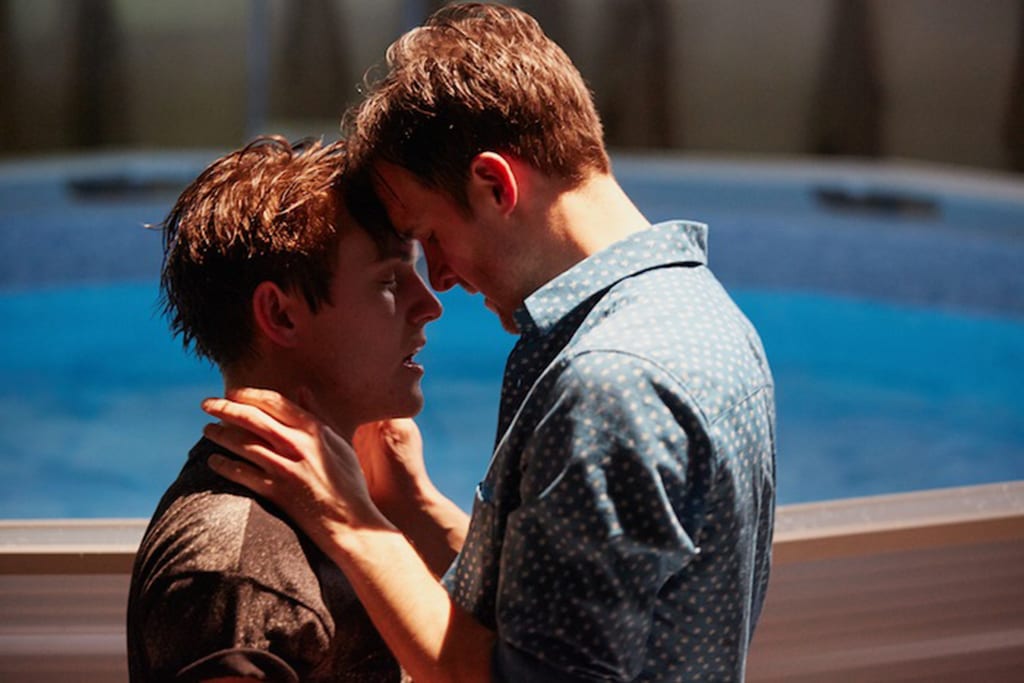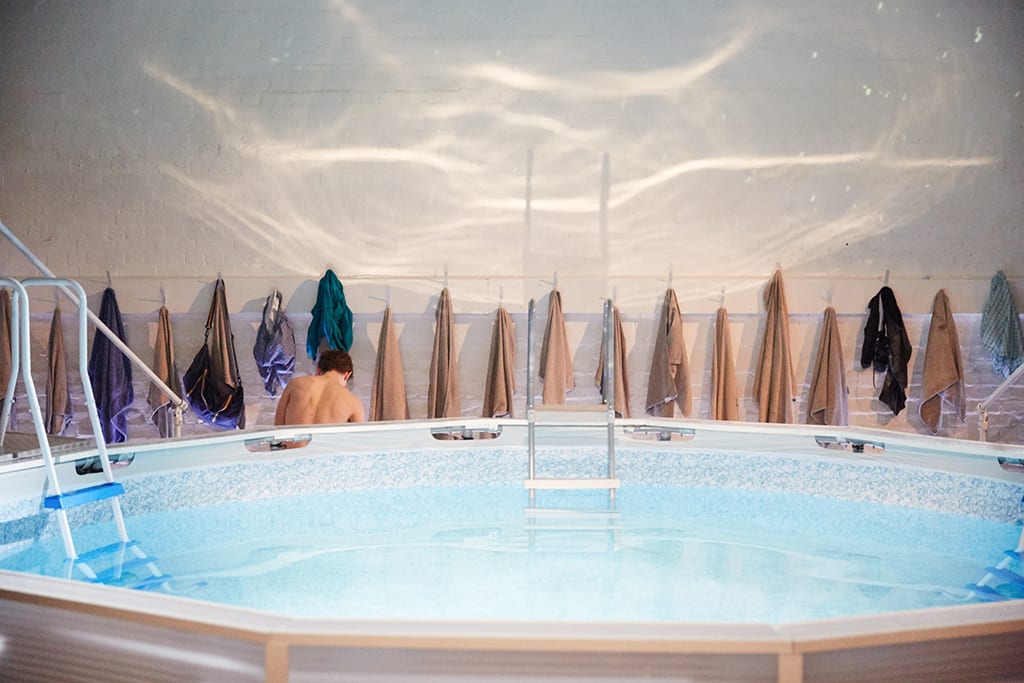When Adam was banished from Eden, he sat in the river that flowed from the garden. Adam immersed in the water, in the very first Mikvah, repenting, begging to transform back to an original state of perfection.
The Yard is a converted warehouse, hidden away at the back of Hackney Wick station, a stone’s throw away from the Olympic Stadium. Split in two sections – a 110 seat theatre and a bar – is made with recycled and reclaimed material, with a “derelict chic” look.
The set is a full size pool (designed by Cécile Trémolieres) with the action taking place in or around it. Avi and Eitan are a generation apart and loosely know each other from the synagogue. Avi is 35, devoted to Leila his wife, with a job, a mortgage and a devout Jew; clean-cut and settled. He goes to the Mikvah to cleanse himself and to…improve his sperm-count. Eitan, on the other hand, is 17; he has just been kicked out of the choir, cannot see himself in a relationship and he has erections at the most inopportune moments. He goes to the Mikvah, because Avi sings like an angel and wants to chat with him. Their conversations awkward and forced at first turn to an unusual bond and when Eitan can no longer hide his feelings for Avi, both men have to face the mounting sexual tension and rediscover and redefine their existence.
Azouz’s play – and similarly Jay Miller’s production – takes its time. It unwinds languidly. As the actors immerse themselves teleturgically in the water, so do the spectators immerse in the textured layers of the play. It starts lightly, in the Mikvah the water must come from a natural spring, not any old bath can be turned into one. The congregation in the synagogue is a kaleidoscope of gossip and Warhammer is intergenerational. As the bond and the attraction deepen, the atmosphere tenses – “Imagine. Touching. ” – and when finally they each make their choice, we break to the surface and draw breath. Our introduction to the Mikvah has turned into a study on the fluidity of human identity and the limits of love. A story grounded in reality, with no literary frills.
The cast’s performance is delicate and understated. Both Jonah Russell (Avi) and Oliver Coopersmith (Eitan) are captivating and each captures ably the age and life experience of their respective characters. Their conversations are awkward and halting and light-hearted intimacy is just a short-lived interval. They tell their story drenching and drying themselves in and out of the pool with sincerity and humour. Sometimes in the first person and sometimes as narrators, using microphones around the set.
Despite the fact that the scenes acted out of the mikvah seem dwarfed by the presence of the pool, giving them a slightly awkward and crowded air, the alternation between first and third person and the use of microphones, actually gives the performance space and depth. I believe a larger stage would have allowed a better exploration of the text.
Despite my initial reservations that I do not know enough about the Jewish culture to fully appreciate the nuances and my fear that I might spend my evening listening to incessant and vacuous navel gazing around a pool; The Mikvah Project proved a tender and funny two-hander well worth the time and the biting cold.



